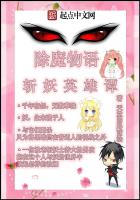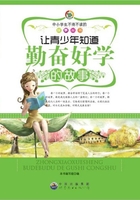“Now then, you devil’s puppet, bestir yourself and look for it!” Denisov shouted suddenly, turning purple and dashing at the valet with a threatening gesture. “The purse is to be found, or I’ll flog you! I’ll flog you all!”
Rostov, his eyes avoiding Denisov, began buttoning up his jacket fastening on his sword, and putting on his forage-cap.
“I tell you the purse is to be found,” roared Denisov, shaking the orderly by the shoulders and pushing him against the wall.
“Denisov, let him be; I know who has taken it,” said Rostov, going towards the door without raising his eyes.
Denisov stopped, thought a moment, and evidently understanding Rostov’s hint, he clutched him by the arm.
“Nonsense!” he roared so that the veins stood out on his neck and forehead like cords. “I tell you, you’ve gone out of your mind; I won’t allow it. The purse is here; I’ll flay the skin off this rascal, and it will be here.”
“I know who has taken it,” repeated Rostov, in a shaking voice, and he went to the door.
“And I tell you, you’re not to dare to do it,” shouted Denisov, ****** a dash at the ensign to detain him. But Rostov pulled his arm away, lifted his eyes, and looked directly and resolutely at Denisov with as much fury as if he had been his greatest enemy.
“Do you understand what you’re saying?” he said in a trembling voice; “except me, there has been no one else in the room. So that, if it’s not so, why then …”
He could not utter the rest, and ran out of the room.
“Oh, damn you and all the rest,” were the last words Rostov heard.
Rostov went to Telyanin’s quarters.
“The master’s not at home, he’s gone to the staff,” Telyanin’s orderly told him. “Has something happened?” the orderly added, wondering at the ensign’s troubled face.
“No, nothing.”
“You’ve only just missed him,” said the orderly.
The staff quarters were two miles and a half from Salzeneck. Not having found him at home, Rostov took his horse and rode to the quarters of the staff. In the village, where the staff was quartered, there was a restaurant which the officers frequented. Rostov reached the restaurant and saw Telyanin’s horse at the entry.
In the second room the lieutenant was sitting over a dish of sausages and a bottle of wine.
“Ah, you have come here too, young man,” he said, smiling and lifting his eyebrows.
“Yes,” said Rostov, speaking as though the utterance of the word cost him great effort; and he sat down at the nearest table.
Both were silent; there were two Germans and a Russian officer in the room. Every one was mute, and the only sounds audible were the clatter of knives on the plates and the munching of the lieutenant. When Telyanin had finished his lunch, he took out of his pocket a double purse; with his little white fingers, that were curved at the tips, he parted the rings, took out some gold, and raising his eyebrows, gave the money to the attendant.
“Make haste, please,” he said.
The gold was new. Rostov got up and went to Telyanin.
“Let me look at the purse,” he said in a low voice, scarcely audible.
With shifting eyes, but eyebrows still raised, Telyanin gave him the purse.
“Yes, it’s a pretty purse … yes …” he said, and suddenly he turned white. “You can look at it, young man,” he added.
Rostov took the purse in his hand and looked both at it and at the money in it, and also at Telyanin. The lieutenant looked about him, as his way was, and seemed suddenly to have grown very good-humoured.
“If we go to Vienna, I suspect I shall leave it all there, but now there’s nowhere to spend our money in these wretched little places,” he said. “Come, give it me, young man; I’m going.”
Rostov did not speak.
“What are you going to do? have lunch too? They give you decent food,” Telyanin went on. “Give it me.” He put out his hand and took. hold of the purse. Rostov let go of it. Telyanin took the purse and began carelessly dropping it into the pocket of his riding trousers, while his eyebrows were carelessly lifted and his mouth stood a little open, as though he would say: “Yes, yes, I’m putting my purse in my pocket, and that’s a very ****** matter, and no one has anything to do with it.”
“Well, young man?” he said with a sign, and from under his lifted eyebrows he glanced into Rostov’s eyes. A kind of gleam passed with the swiftness of an electric flash from Telyanin’s eyes to the eyes of Rostov, and back again and back again and again, all in one instant.
“Come here,” said Rostov, taking Telyanin by the arm. He almost dragged him to the window. “That’s Denisov’s money; you took it …” he whispered in his ear.
“What? … what? … How dare you? What?” … said Telyanin. But the words sounded like a plaintive, despairing cry and prayer for forgiveness. As soon as Rostov heard the sound of his voice, a great weight of suspense, like a stone, rolled off his heart. He felt glad, and at the same instant he pitied the luckless creature standing before him, but he had to carry the thing through to the end.
“God knows what the people here may think,” muttered Telyanin, snatching up his forage-cap and turning towards a small empty room. “You must explain …”
“I know that, and I’ll prove it,” said Rostov.
“I …”
The terrified, white face of Telyanin began twitching in every muscle; his eyes still moved uneasily, but on the ground, never rising to the level of Rostov’s face, and tearful sobs could be heard.
“Count! … don’t ruin a young man … here is the wretched money, take it.” … He threw it on the table. “I’ve an old father and mother!”
Rostov took the money, avoiding Telyanin’s eyes, and without uttering a word, he went out of the room. But in the doorway he stopped and turned back.
“My God!” he said, with tears in his eyes, “how could you do it?”
“Count,” said Telyanin, coming nearer to the ensign.
“Don’t touch me,” said Rostov, drawing back. “If you’re in need take the money.”
He thrust a purse on him and ran out of the restaurant.















